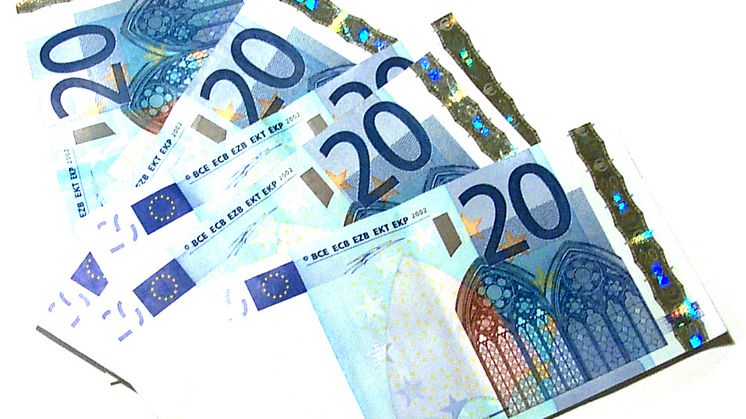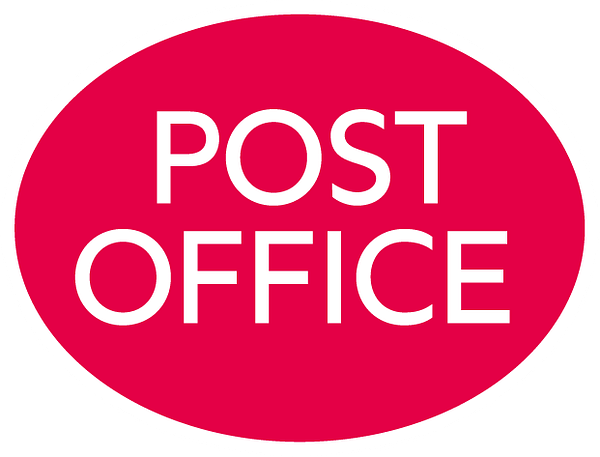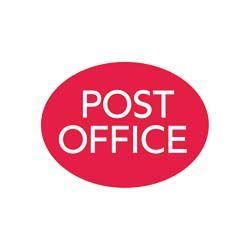
Press release -
HEAD EAST FOR A BARGAIN CITY BREAK AS STERLING SLIDES
- Clean sweep for Eastern Europe in 2016 City Costs Barometer: Warsaw heads cities that fill eight of the best value top ten (www.postoffice.co.uk/citycosts)
- Lisbon is Western Europe’s cheapest city – overtaking Athens
- Prices are up in 80 per cent of cities: biggest rise of 28 per cent in Dublin
- Meals and drinks are lowest-priced in Prague
UK tourists planning city breaks in Europe this spring will find the best bargains by heading east, according to the Post Office Travel Money City Costs Barometer.At a time when sterling has fallen in value against virtually every European currency¹, Eastern European cities fill eight of the top 10 places in the barometer of costs for 35 cities².
Warsaw, one of 10 new cities³ surveyed for the eighth annual report, has emerged as the cheapest.At £113 for 12 typical city break items, including meals, drinks, two nights’ three-star weekend accommodation, sightseeing and transport costs, prices in the Polish capital are almost a third of those in Europe’s most expensive city, Stockholm (£325).
Despite registering a 15 per cent increase in costs, Vilnius (£115) in Lithuania, last year’s top city, is a close runner-up in the 2016 Post Office Travel Money survey, ahead of third-placed Budapest (£123).Latvian capital Riga (£132) is in fourth place while a second Polish city, Krakow (£133) has moved up to fifth position, thanks to an 8.5 per cent price fall.
A drop in the cost of hotel accommodation has helped Lisbon (£135) move two places up the barometer table into sixth position and makes the Portuguese capital the cheapest city in Western Europe – overtaking Athens (£149), which falls to 10th place.By comparison, rising hotel prices account for a 28 per cent rise for Dublin (£306), making this the most expensive of 21 eurozone cities surveyed with a barometer total more than double the Lisbon cost.
Dublin is not the only city to show price increases – although its rise was the steepest.UK visitors will find it more expensive this year in four-fifths of cities (excluding the 10 new introductions) and sterling’s slide in value is part of the reason for this.Prices have risen 15.2 per cent in Barcelona (£280), 17.2 per cent in Vienna (£217) and 17.5 per cent in Venice (£283) – as well as by 21.6 per cent Tallinn (£160), the largest increase in Eastern Europe.
Andrew Brown of Post Office Travel Money said: “This year’s higher prices make it doubly important for holidaymakers to do their homework and check costs for meals, drinks and sightseeing before booking, as these are items that most city break tourists will be paying for.Our research found wide variations in costs between cities and those people who are prepared to swap can make their pounds stretch further by choosing a cheaper capital like Warsaw in the east or Lisbon in the west.Budget carefully and change enough cash before leaving home to cover likely costs – and remember there are better exchange rates for higher value Post Office branch or online transactions.”
Eighth-placed Prague remains best value for meals and drinks.At just under £32 for a three-course evening meal for two with a bottle of wine plus individual drinks including coffee, beer, Coca-Cola and a glass of wine, the Czech capital easily rates as cheapest for these staples. By comparison, the Nordic cities of Reykjavik (£114) and Oslo (£118), both new additions to the Post Office report, will set visitors back almost four times as much.
Helsinki, another new introduction and the only Nordic city in the eurozone, was the cheapest of five ‘Scandinavian’ ones surveyed.At just below £279, the Finnish capital was over 14 per cent cheaper than Stockholm.
Alongside Warsaw, Moscow emerges as best value among the 10 new cities surveyed.The collapse of the Russian ruble since 2014 has significantly reduced prices for UK tourists since then and its barometer total of £146 has given Moscow a top 10 place in ninth position.
Completing this year’s top 10 is Dubrovnik (£137), where the low cost of hotel accommodation - £41 for two nights in a three-star hotel for two people – has taken the Croatian city to seventh place on the back of a 2.3 per cent year-on-year price fall.
In the UK Belfast again rates as cheapest of three cities surveyed, with a barometer total of £220 - £10 less than Edinburgh.London prices are significantly higher at £300, but Post Office Travel Money recorded hefty year-on-year price rises for all three cities (Belfast: +11.2 per cent; Edinburgh: +9.1 per cent and London: +12.4 per cent).This was primarily because of increased room rates in hotels.
Other City Cost Comparisons At A Glance:
-
Staying over: Along with Dubrovnik, Riga (£42) offers the cheapest two-night weekend stay in a three-star city centre hotel during April.At £189, the price in Dublin is over four times as high.Others with cheap accommodation include Budapest (£43), Vilnius (£50), Warsaw (£54) and Lisbon (£55).
- Getting around: Travel to and from airports or train stations costs least in Vilnius (£1.58), Warsaw (£1.67) and Riga (£1.81).At the other end of the scale, transfers cost over £15 in Paris, Oslo, Reykjavik and Stockholm.48-hour travel cards can significantly cut the cost of getting around a city and those in Moscow (£4.27) and Tallinn (£3.94) are bargain-priced.By comparison, a Stockholm travel card costs £20.Best value of all is Geneva where a two-day card is free for those staying in city hotels.However, a sightseeing Geneva bus tour costs over £35 – five times as much as in Dubrovnik (£6.52).
-
Culture Costs: Copenhagen takes the crown for value because its top heritage attraction, museum and art gallery are all free. Entry to three cultural attractions is also cheap in Vilnius (£3.71), Riga (£4.72), Warsaw (£6.27) and Dublin (£7.88) but Vienna’s cultural treasures will set visitors back over £32 and Amsterdam tops this at almost £40.
City break holidaymakers can purchase euro on demand at over 10,000 Post Office branches while other City Costs Barometer currencies are available over the counter at more than 1,600 branches. The Post Office is the UK’s leading provider of foreign currency, offering up to 70 currencies for pre-order at all 11,500 branches or online at postoffice.co.uk for next day branch or home delivery.
The full results of the 2016 Post Office Travel Money City Costs Barometer can be viewed online at: postoffice.co.uk/citycosts.
ENDS
For more information, please contact:
Gabrielle O’Gara Post Office Press Office 0207 250 2534 / 07718 977702
Gabrielle.ogara@postoffice.co.uk
Notes to Editors:
¹ Post Office Travel Money comparisons between exchange rates in March 2016 and 2015
| Currency | 2016 | 2015 | % |
| Russian ruble | 93.6802 | 87.0642 | +7.6 |
| Norwegian krone | 11.6164 | 11.3381 | +2.5 |
| Polish zloty | 5.2655 | 5.3909 | -2.3 |
| Swiss franc | 1.369 | 1.4237 | -3.8 |
| Euro | 1.2688 | 1.328 | -4.5 |
| Hungarian forint | 371.8564 | 392.2782 | -5.2 |
| Swedish kronor | 11.4604 | 12.1225 | -5.5 |
| Danish kroner | 9.1653 | 9.7598 | -6.1 |
| Croatian kuna | 9.1963 | 9.9034 | -7.1 |
| Czech koruna | 32.5842 | 35.1188 | -7.2 |
| Icelandic krona | 164.6628 | 185.0316 | -11.0 |
² Post Office City Costs Barometer 2016 using exchange rates on 10 March: Prices were supplied by National and Regional Tourist Offices of participating countries, except for Edinburgh, London, Nice, Dublin and Rome (researched online). Two-night accommodation prices were sourced from Hotels.com (1 March 2016) based on the cheapest available three-star city centre accommodation for two adults sharing a double/twin en-suite room between 15-18 April 2016.A full breakdown of barometer costs can be found in the tables attached.
³ New cities surveyed for 2016 City Costs Barometer:
Warsaw (1)
Moscow (9)
Lille (13)
Nice (14)
Palma (18)
Bruges (23)
Helsinki (25)
Geneva (31)
Oslo (33)
Reykjavik (34)
Topics
Categories
About the Post Office
The Post Office (Post Office Limited) has an unrivalled national network of over 11,500 branches across the UK, more than all the high street banks combined, and sits at the heart of communities in Northern Ireland, Scotland, Wales and England. The Post Office has made a commitment to maintaining its network of branches at its current size and reach. It provides around 170 different products and services spanning financial services including savings, insurance, loans, mortgages and credit cards; Government services; telephony; foreign currency; travel insurance and mail services.
The Post Office serves over 17 million customers a week and a third of small businesses. Some 99.7% of the total population live within three miles of a post office and over 97% live with one mile of a post office. For many rural communities, the post office is the only retail outlet. Post Offices branches remain highly valued and trusted, and are the focal point of many communities. For more information, visit http://www.postoffice.co.uk/.
Please note the Press Office team can only deal with enquiries from the media. Unfortunately they do not have access to customer information so can not help with customer enquiries.
If you have an enquiry regarding any Post Office product or service please visit postoffice.co.uk or call 0845 611 2970 Local call rates apply. Call costs may vary depending on your service provider. Calls may be monitored or recorded for training and compliance purposes.




